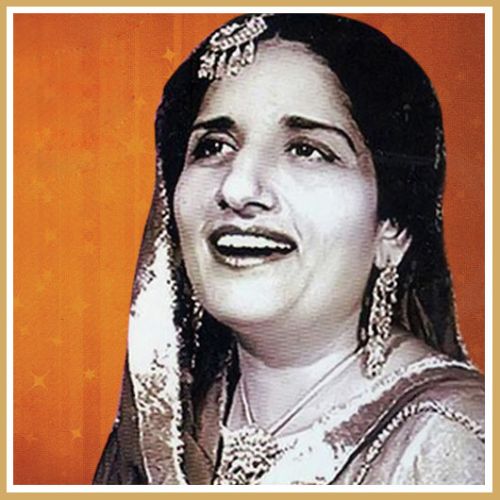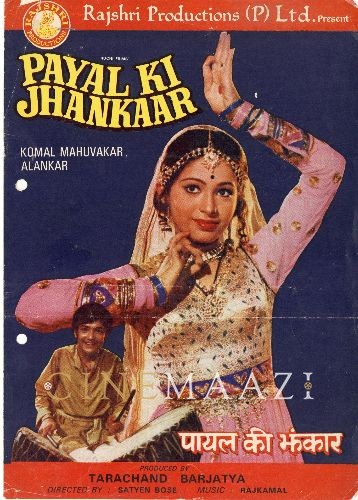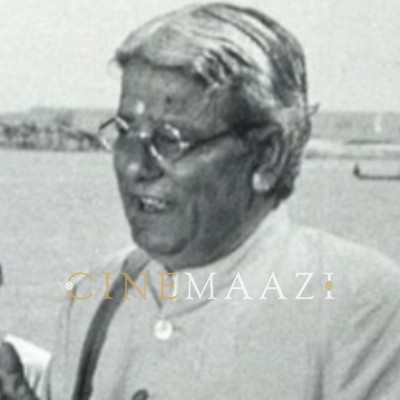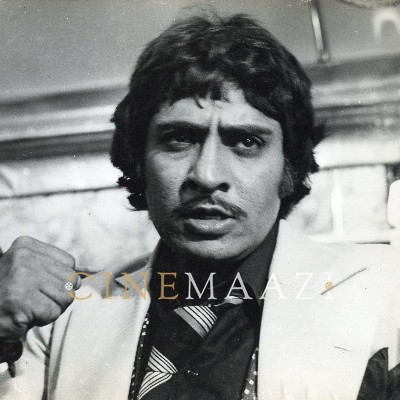Surinder Kaur

Subscribe to read full article
This section is for paid subscribers only. Our subscription is only $37/- for one full year.
You get unlimited access to all paid section and features on the website with this subscription.
Not ready for a full subscription?
You can access this article for $2 , and have it saved to your account for one year.
- Born: 25 November 1929 (Lahore, British India)
- Died: 14 June 2006 (New Jersey, USA)
- Primary Cinema: Punjabi
- Spouse: Joginder Singh Sodhi
- Children: Dolly Gulleria, Nandini Singh, Pramodini Jaggi
Coveted with the title of The Nightingale of Punjab, Surinder Kaur revived the Punjabi folk and classical music, making it popular all over India. An acclaimed singer and songwriter she is considered as a pioneer of folk music of Punjab and for bringing the poetry of eminent Punjabi poets and philosophers such as Bulle Shah, Nand Lal Noorpuri, Amrita Pritam, Mohan Singh and Shiv Kumar Batalvi to life through memorable songs such as Maavan ‘te dheeyan, Madhaniya, Ehna akhan ‘ch paavan kiven kajra, Ghaman di raat and more.
Born into a Punjabi Sikh family in Lahore (then undivided India) on 25th November 1929, she completed her basic education and training in music in the Lahore before her family shifted to Ghaziabad, Delhi after the Partition of India. Surinder made her debut as a singer through Lahore Radio in August 1943. The same year she and her elder sister Prakash Kaur recorded their first duet Maavan ‘te dhiyaan with HMV records. The duo went on to record many songs together in the upcoming years. Surinder Kaur took the women’s songs out of the four walls of houses to the world. Most of these Punjabi folks were traditionally sung in all-women gatherings during various ceremonial occasions as well as to share the sorrows of heart and life. It was to the singer’s credit that made these songs popular all over the world and are still highly revered generations later, leaving an indelible mark on the musical history of Punjab.
She started her Hindi film music journey in the year 1948 with the film Shaheed under the music direction of Ghulam Haider starring Dilip Kumar and Kamini Kaushal. The song Badnaam na ho jaye mohabbat ka fasana, ae dard bhare aasoon akhiyon me na aana went on to become one of the all-time greatest hits. In the same year she also sang for Husanlal Bhagatram in the film Pyaar Ki Jeet starring Suraiya, Manorama, Rehman and Gope. In the film she sang a few duets with Suraiyaa and Meena Kapoor and a solo Itne door hain huzoor kaise mulakaat ho. These songs also went on to become huge hits among the audiences and Surinder Kaur’s voice was appreciated by one and all, all over the country.
She then went onto sing for films such as Lal Dupatta (Chanchal man kahe dhadke, Mere uljhe uljhe sapne sulajh na paayein), Nadiya Ke Paar (Akhiyan mila ke akhiyan, rove din raat ratiyan), and Nao (Tum ho na ho hamare, lo ji hum ho gaye tumhare, Ek nazar yaad hai unki jisne dil pe vaar kiya, Chori chori meri atariya pe aa ja re) in the year 1948, Dada(Ae chaand tere saath to rehte hain sitaare, Tera kisi se pyaar that tu vo zamaana bhul ja), Kaneez (Ummeedon pe udaasi chaa gayi, kya tum na aaoge), Roop Lekha (Tum ho jao hamare kabhi chandani raaton me, Dil ke malik sun mera dil toot gya hai), Sanwaria (Ye laakhon hasratein, ab batao jiyen kiske liye), Singaar (Chanda re mai teri gawaahi lene aayi, Kaun samjhega dil ke dhang niraale hai), and Sunehre Din (Lo ji tumse kehte hai ab tum bin chain na aaye, Tum sang akhiyan mila ke neha laga ke) in the year 1949, Khamosh Sipahi (Saanwara salona koi meri gali aaya hai, Hum dil ki dhadkan ki lai pe furkat ke geet gaate hain), Raj Rani (Dharti hamari pe tu nit nit jhaanke chanda), Sabak (Aahein jo main na bharu tum hi kaho mai kya karu, Din gaya sham aayi dheere dheere hank re gaadi), and Shadi Ki Raat (Pooch rahe ve yaar ki biwi kaisi ho) in 1950, and Aandhiyaan in the year 1952.
Aandhiyaan was her last film of Hindi cinema after which she retired from the industry and went on to focusing on Punjabi folk and classical music for the rest of her career. She only sang one song in the film, Mai mubarakbaad dene aayi hoon under the music composition of Ali Akbar. In a career spanning over mere five years she sang for around twenty films with most of the songs becoming huge hits of the time. Surinder also sang few duets with the leading singers of the era such as Mohammed Rafi, Talat Mahmood, Mukesh, Asha Bhosle and Suraiyaa among many others.
She also went on to sing for a few Punjabi films as well during the same time period. Songs such as Kade utth utth baanh kade from the film Madari (1950) starring Meena Shorey, Suresh and Madan Puri, Aa chann ve badly de pichhon chori and Pannchi de pinjre wich langh gayi bahaar from the film Mutiyar (1950) starring Pran, Shyama and Amar Nath, Khadi rehni haan banere te mundiya and Das ve sajjan hun ki kariye from the film Balo (1952) starring Kamal Kapoor and Ja ja golleya dholna and Kaale rang da paranda mere sajjna from the film Sutlej De Kande (1964) became huge hits as Surinder Kaur went on to become a popular name in the music industry.
Surinder Kaur recorded more than 2000 songs in her five decade long singing career. She and her husband Joginder used to compose most of their songs together as the latter also selected the lyrics of most of her songs. Her most frequent collaborator was her elder sister and also acclaimed Punjabi folk singer Prakash Kaur, with whom she recorded maximum number of songs. Another frequent collaborator of hers was the legendary singer Asa Singh Mastana. The two of them became one of the most hit performing duos of Punjabi music, doing stage performances across India and the World. She also became the first folk singer of India to perform at India-China border. She performed again at the Ladakh border for the Indian army on the insistence of Pt. Jawaharlal Nehru. It was there that she performed a patriotic song for the first time in her career. The song Saathi ho saathi ho chala chal hor agahan na paasan mod peechavan was liked equally by the Prime Minister as well as the soldiers.
In 1984 she was awarded with the Sahitya Akademy Award, followed with the Padma Shri awarded in 2006. Surinder Kaur’s contribution to Punjabi folk and classical music remains unparalleled till date as her songs Suhe ve cheereya waleya, Baajre da sitta, Kala doriya, Akhiyan che tu vasda, Jutti kasturi and Ik meri akh kaashni are still revered many decades later. HMV released a set of five cassettes on “50 Years of Punjabi Music” on the occasion of the 50th Independence anniversary of India. The cassettes comprised of stalwarts such as Shamshad Begum, Rangila, Yamla Jatt, newcomers like Gurdas Maan and Daler Mehndi and two cassettes dedicated to the songs of Surinder Kaur and Prakash Kaur.
Kaur and her husband were parents to three daughters - Dolly Guleria, Nandini Singh and Pramodini Jaggi. Her daughter Dolly Gulleria is also a well acclaimed Punjabi folk and film singer. Two of her other daughters didn’t take up singing and are settled in New Jersey. Surinder spent her last days with her daughter in New Jersey where she breathed her last on 14th June 2006. An exceptional singer in every right she left an impeccable mark in the Punjabi music industry creating a legacy of her known.
References
Swaron Ki Yaatra – Anil Bhargava
https://www.hindustantimes.com/chandigarh/90th-birth-anniversary-the-legend-of-surinder-kaur-lives-on/story-Kb0wEjiHD9XxGaxNvlhY3N.html
https://bollywoodirect.medium.com/tributes-to-surinder-kaur-one-of-the-most-popular-punjabi-folk-singers-of-the-gramophone-age-on-8af96a4ae63a
https://apnaorg.com/articles/nirpuma-13/
Image courtesy: https://www.chaltapurza.com/surinder-kaur-was-popularly-known-as-punjab-di-koyal/
-
Filmography (2)
SortRole
-

Payal Ki Jhankaar 1980











.jpg)



